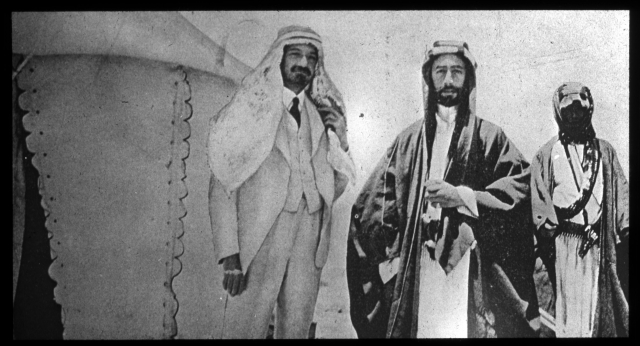On January 25th, 1919, a day before the modern International Holocaust Memorial Day that was created in 1945 when the Auschwitz-Birkenau concentration camp was liberated, Chaim Weizmann warned the British that unless Jews secure a place of their own they would be headed for a great disaster in the coming decades.
During the final years of WW1 and the years to come, Chaim Weizmann, who would become the First President of Israel, became a key figure in the Zionist leadership seeking to revive the concept of a Jewish homeland in the land of Israel. With the beginning of the British Mandate for Palestine at the end of the war, Weizmann would appeal to the British ruling parties on multiple occasions in the name of the Zionist cause. He would argue that the Zionist settlement has already advanced the agricultural and modernization status of the land while maintaining overall healthy relations with the local Arabs.
Of course great part of the blame for the bad turn in Arab / Jewish relations lies with the British and the French carving out chunks of former Ottoman possessions.
— SignoreP 🇮🇱 (@gobsmackled) November 14, 2022
Despite recognizing that General Arthur Wigram Money, head of the British Military administration in Palestine at the time was strictly opposed to Zionism, Weizmann nonetheless continued his persistent argument for the Zionist case to the general. After a meeting with General Money that was said to be extremely heated, Weizmann followed up the meeting by sending a letter that would put the need for Zionism into context, while eerily forecasting the future of the Jewish Diaspora.
In the letter, Weizmann wrote: “The lessons which world Jewry has learned in the last few terrible years has forced them to a conclusion that unless they secure a place which they may call their home in a real sense of the word, they will be faced by a terrible catastrophe. Moreover, such a catastrophe would shatter not only the whole fabric of Jewish existence but would endanger the peace and society as a whole. This is, I am afraid, an incontrovertible fact whose tragic significance is not quite clear to everybody. It was not quite evident even to myself because I had the good fortune to live and work in this country [England].
Weizmann later added, “It is only recently, since the veil of war has been slightly lifted, that the whole tragedy of my people has become more apparent to me, and it is their cry for help, their just claim to exist, their wish, dictated by a relentless logic of cruel facts, that I have tried to explain.”
In 1919, the @RHCJO that controlled Mecca signed an agreement with Chaim Weizmann to encourage Jewish immigration to Palestine in advance of a Jewish State.
— The Judean (@TheJudean) January 3, 2023
The Hashemites got kicked out by Al-Saud & the Jordanian court refused to honor the agreement. https://t.co/I0k8DzxkCl
Despite Weizmann’s compelling and truthful letter, Money was not persuaded. As the separation of Trans-Jordan from the Palestine Mandate took place, Money left the region in early 1920 and would be succeeded by a civil administration led by Sir Herbert Samuel.


